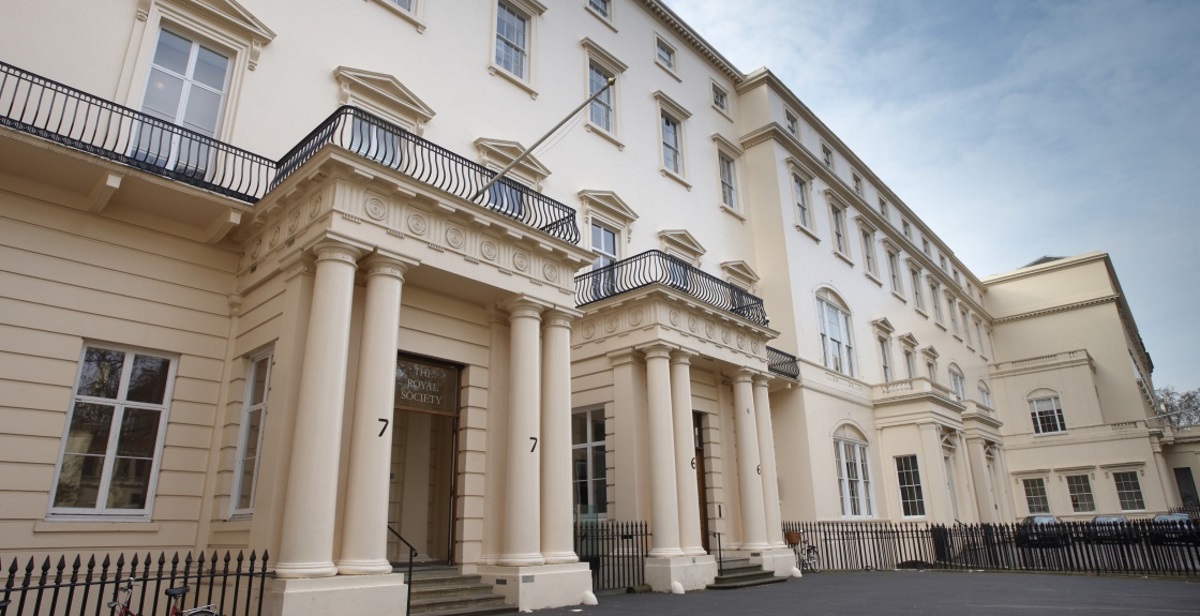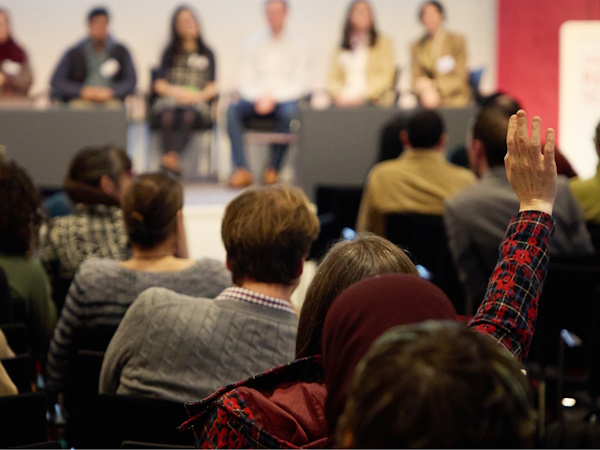A human focus for 21st century life sciences
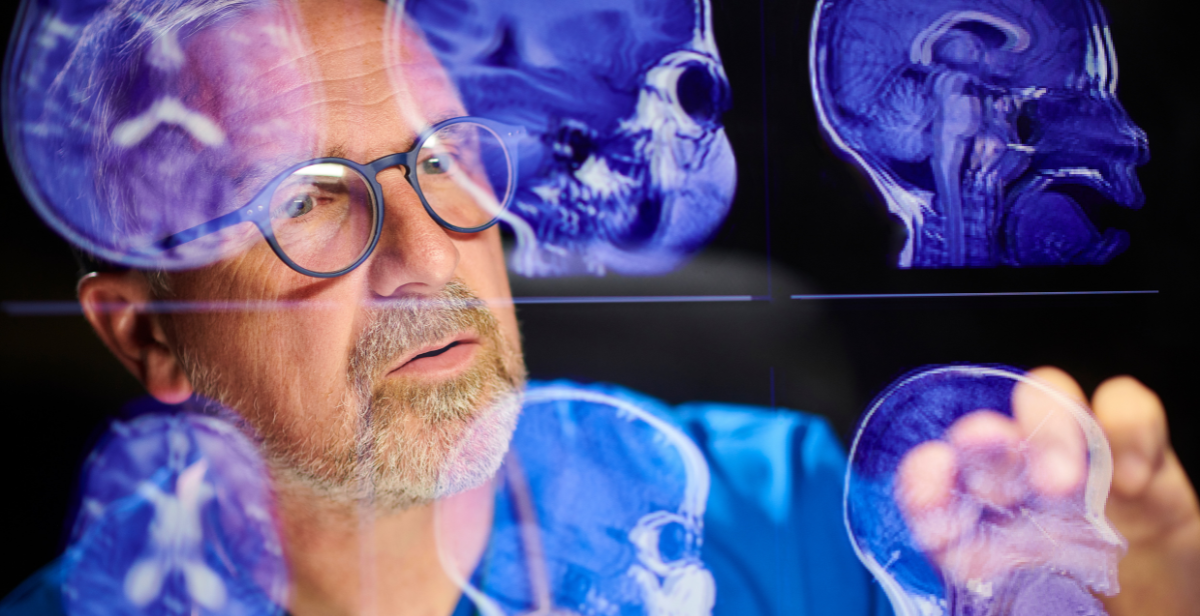
Also in “ Scientific meeting”
Science+ meeting organised by Professor Geoffrey J Pilkington, Ms Rebecca Ram and Ms Kathy Archibald.
This meeting will showcase the transformative value of innovative, human-focused biomedical technologies, which are providing invaluable insights into human diseases and could underpin the development and optimal use of new and repurposed medicines. It will bring together researchers, clinicians, industries, regulators and others to discuss key challenges and how to surmount them to to accelerate their advantageous development and implementation.
Programme
The programme, including speaker biographies and abstracts, will be available soon. Please note the programme may be subject to change.
Attending this event
This event is intended for researchers in the relevant fields.
- To attend virtually, please register and you will be sent a streaming link close to the meeting date
- When requesting an in-person invitation, please briefly state your expertise and reasons for attending
- Requests are reviewed by the meeting organisers on a rolling basis. You will receive a link to register if your request has been successful
- Lunch is available on both days of the meeting for an optional £25 per day. There are plenty of places to eat nearby if you would prefer to purchase food offsite. Participants are welcome to bring their own lunch to the meeting
Enquiries: Scientific Programmes team.
Image credit: iStock.com / sturti
Organisers
Schedule
Chair
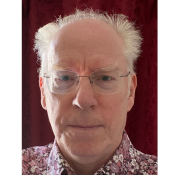
Professor Michael Coleman
Aston University, UK

Professor Michael Coleman
Aston University, UK
Professor Coleman graduated with first-class honours in Pharmacology and a PhD in Biochemical Pharmacology from Liverpool University. He spent two years as a National Research Council Resident Research Associate at Walter Reed Army Institute of Research, Washington DC, then, after completing a Wellcome Fellowship in Toxicology he joined Aston University. His research interests since 1991 have been focussed on developing human experimental models in toxicology and latterly neurotoxicology.
| 09:00-09:05 |
Welcome by the Royal Society & lead organiser

Professor Geoffrey J. PilkingtonUniversity of Portsmouth, UK 
Professor Geoffrey J. PilkingtonUniversity of Portsmouth, UK Geoff Pilkington is an Emeritus Professor of Neuro-oncology, having held chairs at King's College, London and the University of Portsmouth, where he was Director of the Brain Tumour Research Centre which exclusively used human cells, tissues and biomaterials in their research. He is a Past President of the British Neuro-oncology Society and Honorary Treasurer, Executive Board Member and Scientific Board Member of the European Association of Neuro-oncology as well as being a Fellow of the Royal College of Pathologists and a Fellow of the Royal Society of Biology. His published work was largely focussed around brain tumour invasion, the blood brain barrier, the tumour microenvironment, brain tumour modelling and repurposed drugs. |
|---|---|
| 09:05-09:25 |
A 50-year career reflection on models of human disease in research and pre-clinical testing: where are we now?

Professor Geoffrey J. PilkingtonUniversity of Portsmouth, UK 
Professor Geoffrey J. PilkingtonUniversity of Portsmouth, UK Geoff Pilkington is an Emeritus Professor of Neuro-oncology, having held chairs at King's College, London and the University of Portsmouth, where he was Director of the Brain Tumour Research Centre which exclusively used human cells, tissues and biomaterials in their research. He is a Past President of the British Neuro-oncology Society and Honorary Treasurer, Executive Board Member and Scientific Board Member of the European Association of Neuro-oncology as well as being a Fellow of the Royal College of Pathologists and a Fellow of the Royal Society of Biology. His published work was largely focussed around brain tumour invasion, the blood brain barrier, the tumour microenvironment, brain tumour modelling and repurposed drugs. |
| 09:25-09:45 |
Talk title TBC
|
| 09:45-10:15 |
Discussion
|
| 10:15-10:45 |
Break
|
| 10:45-11:05 |
HNRNPD: Guardian of the (beta cell) galaxy
Cellular stressors are inducers of cell identity change. In the pancreatic islet, factors such as high glucose and dysregulated lipid can cause cellular transdifferentiation events. This has been observed in human beta cells in vitro and in islets of people with diabetes. Using a completely humanised system, we investigated the causes of pancreatic cell identity change by defining global gene expression patterns in normal and transdifferentiated cells after exposure to stress. We then tested the most dysregulated genes for causality using siRNA gene knockdown and hormone staining. We then investigated the impact of splicing-associated changes in the binding and expression of downstream targets. Finally, we explored the potential for reversal of cell identity changes by restoration of euglycaemia or manipulation of candidate isoform levels. We identified the heterogeneous ribonucleoprotein D (HNRNPD) gene as a potent protector of beta cell identity in the face of cellular stress. Cellular stressors caused a change in the splicing patterns of HNRNPD, with consequent disruption of the downstream beta cell development and function gene expression programs. We were able to demonstrate reversal of transdifferentiation events by removal of stress or manipulation of HNRNPD isoforms. We have identified HNRNPD as a key factor involved in the protection of beta cell identity. HNRNPD splicing changes induced by disrupted metabolism cause a reversible switch from a beta cell to delta cell profile. The nature of the change is human-specific and underlines the importance of using human-relevant experimental systems to identify human-relevant disease processes. These findings may represent a potential future point of traction for protection of beta cell mass in face of diabetes. 
Professor Lorna HarriesExeter University, UK 
Professor Lorna HarriesExeter University, UK |
| 11:05-11:25 |
Drug-induced liver injury in clinical practice
|
| 11:25-11:55 |
Discussion
|
| 11:55-12:35 |
Panel discussion: A range of human relevant models for human diseases
|
Chair
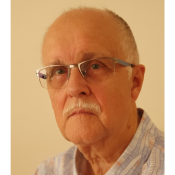
Professor Malcolm Wilkinson
Sheffield University, UK

Professor Malcolm Wilkinson
Sheffield University, UK
Dr Wilkinson studied Physics at Oxford University and then worked in industry for 16 years developing microelectronics. In 1994 he started a consultancy in Cambridge supporting the development of microfluidics devices for medical diagnostics. From 2006 to 2019 he was CEO of Kirkstall Ltd, one of the world’s leading Organ on a Chip companies. Although now retired, he continues as a Director of Kirkstall Ltd., and is on the Scientific Advisory Panel of Animal Free Research UK supporting their work to replace the use of animals in medical research and drug testing. He has been a visiting Lecturer for FSRM, Neuchatel, Switzerland, on the subject of Micro and Nanotechnology in Biomedical Engineering for over ten years and was appointed as a Visiting Professor in the Department of Biomedical Engineering at Sheffield University in 2019.
Dr Wilkinson is co-author on several papers on in-vitro models of toxicity and a contributing editor of a recently published book on In-Vitro Testing. He has recently published a review article on the status of Organ on a Chip technology.
| 13:30-13:45 |
Optional ornament or crucial code? The role of modelling and simulation in human safety assessment
Dr Ciarán FisherGSK, UK Dr Ciarán FisherGSK, UK Ciarán Fisher is an accomplished quantitative systems toxicologist, presently holding the position of Associate Director in Systems Toxicology and Data at GSK. He earned his PhD in Molecular Toxicology from the University of Surrey. Throughout his career, Dr Fisher has made significant contributions to the advancement of mathematical models for predicting drug and chemical safety, with a focus on integrating and interpreting both in vitro and in vivo nonclinical data to support QST modelling strategies. He has participated in several high-profile projects, including the EUTOXRISK Horizon 2020 initiative and the IMI2 public-private partnership project, Translational Quantitative Systems Toxicology (TransQST). His academic experience includes a postdoctoral fellowship on a BBSRC-funded project investigating gene regulatory network dysregulation in the pathogenesis and progression of non-alcoholic diseases. Dr Fisher has authored or co-authored 25 peer-reviewed publications. He is a member of the British Toxicology Society (BTS) and serves as joint coordinator of the BTS in silico and computational specialty section. |
|---|---|
| 13:45-14:00 |
Human-based in silico medicine for drug development
Professor Blanca RodriguezUniversity of Oxford, UK Professor Blanca RodriguezUniversity of Oxford, UK Professor Blanca Rodriguez is Professor of Computational Medicine, Wellcome Trust Senior Research Fellow, and Head of the Computational Biology and Health Informatics Theme at the Department of Computer Science, University of Oxford. She aims to accelerate medical therapy development through augmenting clinical and experimental data with modelling and simulation, and machine learning. Her team has contributed pioneering case studies for the Digital Twin vision in precision medicine, and In Silico Trials for therapy testing. She actively collaborates with industry and leads the Computational Cardiovascular Science team at Oxford, an interdisciplinary, diverse and award-winning research team. Originally, she is from Valencia, Spain, where she trained in Engineering at the Universidad Politecnica de Valencia (MSc and PhD). She then worked as a postdoc at Tulane University in New Orleans, USA for two years. After this, she joined the University of Oxford, where she was awarded six competitive personal research fellowships and in 2014 the professorship in Computational Medicine. |
| 14:00-14:15 |
In silico tools in preclinical safety assessment
|
| 14:15-14:45 |
Discussion
|
| 14:45-15:15 |
Break
|
| 15:15-15:30 |
Talk title TBC
Dr Dharaminder SinghFormerly CN Bio, UK Dr Dharaminder SinghFormerly CN Bio, UK Dr Dharaminder Singh is a recognised leader in bioengineering and microphysiological systems (MPS), with a proven track record of driving innovation and strategy in next-generation drug discovery platforms. With deep expertise spanning engineering, biology, and translational science, he has directed high-impact collaborations across pharmaceutical, biotechnology, and academic sectors to accelerate the adoption of new approach methodologies (NAMs). Dharaminder’s work has shaped the development and global application of organ-on-a-chip technologies, advancing regulatory engagement, standardisation efforts, and qualification guidelines. A strong advocate for MPS integration in research and industry, he contributes to international initiatives that aim to transform drug development pipelines, and serves as a member of the UK Government’s Animals in Science Committee. Dharaminder holds an MEng in Biomaterials Science and Tissue Engineering and a PhD in Bioengineering from the University of Sheffield. |
| 15:30-15:45 |
Human vascularity on-a-chip
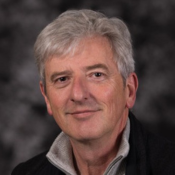
Professor Christopher HughesUniversity of California, Irvine, US 
Professor Christopher HughesUniversity of California, Irvine, US Professor Hughes is a Chancellor’s Professor and Associate Dean of Research and Innovation at UC Irvine. His research focuses on the development and growth of blood vessels, and he is a pioneer in the field of microphysiological systems (organ-on-chip), specializing in the creation of vascularized and perfused tissue-on-chip models. The technology is now licensed to Aracari Biosciences, for which Dr Hughes is a founder and CSO. He served for 10 years as chair of his department and previously served as Director of UCI’s Advanced Cardiovascular Technology Center, and as a Program Leader in the Cancer Center. He is an elected Fellow of the American Association for the Advancement of Science (AAAS), and works extensively with the non-profit organization, cureHHT, where he chairs their Scientific and Medical Advisory Council. In 2022 he received their Lifetime Achievement Award. |
| 15:45-16:00 |
Discussion
|
| 16:00-16:30 |
Panel discussion: Cross talk between new technologies and research applications
|
| 16:30-16:50 |
Flash talks x 4
|
| 16:50-17:00 |
Day 1 closing remarks

Professor Geoffrey J. PilkingtonUniversity of Portsmouth, UK 
Professor Geoffrey J. PilkingtonUniversity of Portsmouth, UK Geoff Pilkington is an Emeritus Professor of Neuro-oncology, having held chairs at King's College, London and the University of Portsmouth, where he was Director of the Brain Tumour Research Centre which exclusively used human cells, tissues and biomaterials in their research. He is a Past President of the British Neuro-oncology Society and Honorary Treasurer, Executive Board Member and Scientific Board Member of the European Association of Neuro-oncology as well as being a Fellow of the Royal College of Pathologists and a Fellow of the Royal Society of Biology. His published work was largely focussed around brain tumour invasion, the blood brain barrier, the tumour microenvironment, brain tumour modelling and repurposed drugs. |
| 17:00-18:15 |
Poster session
|
Chair

Professor Christopher Hughes
University of California, Irvine, US

Professor Christopher Hughes
University of California, Irvine, US
Professor Hughes is a Chancellor’s Professor and Associate Dean of Research and Innovation at UC Irvine. His research focuses on the development and growth of blood vessels, and he is a pioneer in the field of microphysiological systems (organ-on-chip), specializing in the creation of vascularized and perfused tissue-on-chip models. The technology is now licensed to Aracari Biosciences, for which Dr Hughes is a founder and CSO. He served for 10 years as chair of his department and previously served as Director of UCI’s Advanced Cardiovascular Technology Center, and as a Program Leader in the Cancer Center. He is an elected Fellow of the American Association for the Advancement of Science (AAAS), and works extensively with the non-profit organization, cureHHT, where he chairs their Scientific and Medical Advisory Council. In 2022 he received their Lifetime Achievement Award.
| 09:05-09:25 |
Drug safety, pharmacogenomics and personalised medicine

Sir Munir PirmohamedUniversity of Liverpool, UK 
Sir Munir PirmohamedUniversity of Liverpool, UK Professor Sir Munir Pirmohamed (MB ChB, PhD, FRCPE, FRCP, FFPM. FRSB, FBPhS, FMedSci, DL) is David Weatherall Chair in Medicine at the University of Liverpool, NHS Chair of Pharmacogenetics, and a Consultant Physician at the Royal Liverpool University Hospital. He is Director of the Centre for Drug Safety Sciences, and Director of the Wolfson Centre for Personalised Medicine. He is also Director of HDR North. He also leads the Centre for Excellence in Regulatory Science in Pharmacogenomics (CERSI-PGx). He is an inaugural National Institute for Health and Care Research Senior Investigator, Fellow of the Academy of Medical Sciences in the UK, and Chair of the Commission Human Medicines. He is a medical trustee for the British Heart Foundation. He is Past-President of British Pharmacological Society and of the Association of Physicians. He was awarded a Knights Bachelor in the Queen’s Birthday Honours in 2015. His research focuses on personalised medicine, clinical pharmacology and drug safety in a variety of disease areas, including cardiovascular medicine. |
|---|---|
| 09:25-09:45 |
Cardiovascular diseases and drugs: where are we with hiPSC models?
Derivation of cardiovascular cell types from human pluripotent stem cells (hPSCs) generated from patient tissues or introducing targeted mutations into healthy control hPSCs is an area of growing interest as a platform for disease modelling, drug discovery and (cardio) toxicity. Our lab has been investigating microtissue solutions in which cardiomyocytes and cardiac vascular and stromal cells are present. The presence of cardiac stromal cells promotes cardiomyocyte maturation. By combining cardiac microtissues with new methods for functional phenotyping, we have been able to quantify the outcomes of drug and disease mutation responses in situ in high throughput. The use of isogenic pairs of hiPSC lines with and without mutations has proven very important since variability between “healthy control” hiPSC lines is often greater than the difference between diseased cells and its isogenic control. Examples of studies investigating disease and drug responses in cardiac microtissues will be shown. These approaches have allowed us to identify which cell types in the heart are responsible for the disease phenotypes observed in vitro indicating which cells we might target for therapy. Moreover, we have been successful in automating the production of healthy and disease cardiac microtissues such that they can be used for high throughput drug screens. These complex cell systems are paving the way towards better understanding of disease mechanisms and drug discovery. Professor Christine MummeryLeiden University Medical Center, The Netherlands Professor Christine MummeryLeiden University Medical Center, The Netherlands Christine Mummery is Professor of Developmental Biology at Leiden University Medical Center. Following a PhD in Biophysics, she moved to the Hubrecht Institute to study ion channels and later, cardiovascular diseases using pluripotent stem cells from patients, developing organ-on-chip models. This has centred on safety pharmacology to predict toxic effects of drugs on the human heart and capturing cardiac and vascular disease phenotypes including identifying individual vulnerability and drug sensitivity. She was president of the International Society for Stem Cell Research (2020-2021) and co-founded the European Organ-on-Chip Society. She is also a member of the Royal Netherlands Academy of Science. In 2021, she was awarded the Lefoulon Delalande Prize jointly with Gordon Keller. She is currently on, or chairs, advisory boards of Sartorius AG (Germany), HeartBeatBio (Austria), Mogrify UK, Cellestic, Founding (now Associate) Editor of the ISSCR journal Stem Cell Reports, among others. |
| 09:45-10:15 |
Break
|
| 10:45-11:00 |
3D cell culture models and their role in enhancing genotoxicity testing approaches for nano and advanced-materials
Professor Shareen H. DoakMedicines and Healthcare products Regulatory Agency (MHRA), UK Professor Shareen H. DoakMedicines and Healthcare products Regulatory Agency (MHRA), UK Shareen Doak is a Deputy Director in Safety and Surveillance at the Medicines and Healthcare products Regulatory Agency (MHRA), leading the Benefit-Risk Evaluation I function. She is an Emeritus Professor of Genotoxicology and Cancer, and UK and EUROTOX Registered Toxicologist (UKRT, ERT). Prior to joining the MHRA, Shareen’s academic research experience focused on the genotoxic profiles of chemicals and advanced materials, mechanisms underlying their DNA damaging potential and subsequent consequences upon human health. Her interests extended to carcinogenicity, and development of advanced 3D culture models and mechanism-based bioassays for safety assessment to reduce the need for animal testing. Shareen has served as a member of the Committee on Carcinogenicity of Chemicals in Food, Consumer Products and the Environment (COC), the Scientific Advisory Group on Chemical Safety in Consumer Products (SAG-CS) for the Office for Product Safety and Standards (OPSS), and the Health & Safety Executive (HSE) Science Quality Assurance Group (SQAG). |
| 11:00-11:15 |
Talk title TBC
Dr Nicole C. KleinstreuerNational Institutes of Health, US Dr Nicole C. KleinstreuerNational Institutes of Health, US Nicole C. Kleinstreuer, PhD, is the Acting NIH Deputy Director for Program Coordination, Planning, and Strategic Initiatives. In this role, she leads the Division of Program Coordination, Planning, and Strategic Initiatives (DPCPSI) within the NIH Office of the Director, which oversees trans-NIH programmatic research and strategic policy initiatives, including the NIH Common Fund and offices focused on women’s health, data science, AIDS research, disease prevention, behavioural and social sciences, dietary supplements, and tribal health, among others. Dr Kleinstreuer is internationally recognised for her leadership in developing innovative, human-relevant research strategies that advance public health protection. Prior to her current position, she served as Director of the National Toxicology Program Interagency Center for the Evaluation of Alternative Toxicological Methods (NICEATM), within the National Institute of Environmental Health Sciences (NIEHS). Dr Kleinstreuer holds BS degrees in biomedical engineering and applied mathematics from the University of North Carolina at Chapel Hill and a PhD in bioengineering from the University of Canterbury. |
| 11:45-12:30 |
Panel discussion: The state of play; preclinical to clinical drug safety and regulatory perspectives
|
| 13:30-13:50 |
Why we need social sciences to understand our behaviour and make faster progress together
Professor Merel Ritskes-HoitingaUtrecht University, The Netherlands Professor Merel Ritskes-HoitingaUtrecht University, The Netherlands Merel Ritskes-Hoitinga is Professor in Evidence-Based Transition to Animal-Free Innovations at Utrecht University. After her graduation as a veterinarian from Utrecht University in 1986, she has been committed to the goal of implementing the 3Rs, Replacement, Reducation and Refinement of animal studies. Systematic reviews turned out to be a valuable methodology to implement the 3Rs. Unfortunately, the evidence from systematic reviews demonstrates the generally low quality of publications and low translational value of animal studies for humans. This scientific fact indicates clearly that we need to find more human-relevant research. Not only is it important to develop new non-animal alternatives, ie more human-relevant methodologies, but also on how these will become generally accepted and taken up in legislation. This has implied taking steps to broadening her research and education, also teaming up with social sciences and multiple stakeholder groups. |
|---|---|
| 13:50-14:10 |
Driving change through better evidence to improve decision-making
Dr Katya HélinAkttyva Therapeutics, US Dr Katya HélinAkttyva Therapeutics, US Dr Katya Hélin (formerly Tsaioun) is a life sciences entrepreneur and a founder of Akttyva Therapeutics. The focus of her career has been the translation of scientific innovations into therapies and technologies enabling improvements in human health. She spent two decades in pharmaceutical industry leading translational drug-discovery teams, subsequently founding Apredica, which became a leader in commercializing in vitro de-risking technologies for drug-discovery programs. After a successful acquisition of Apredica by Cyprotex, PLC (now Evotec), she served as a CSO and Board member in the merged company. Over the past decade Dr Hélin conducted academic research in toxicology at Johns Hopkins Bloomberg School of Public Health, where she led international multi-stakeholder efforts to establish evidence-based methodologies and practices in translational research. She also serves on advisory boards of companies, non-profits, and on scientific review committees at the NASEM, NIH, EFSA and private foundations. She earned her PhD in Human Nutrition Science from Tufts University and completed post-doctoral training in neurochemistry at Harvard Medical School. |
| 14:10-14:30 |
'Tails & Whiskers': Why mice can't be trusted to model the human immune response
The mouse is now the animal of choice for laboratory-based medical research. Although its contribution to advancing understanding of our inner workings is indisputable, we should acknowledge that mice and humans are tangibly different. This presentation highlights, and attempts some rationale for, discrepancies between the two species’ immune systems. 
Professor John GordonCelentyx Ltd, UK 
Professor John GordonCelentyx Ltd, UK John has more than 250 published papers (primarily around human B cells and their malignancies) and has been among the top 0.5% of published scientists as acknowledged by his inclusion in the elite club of ISI's 'Most Highly Cited Researchers'. As of 2013, John retired from the University of Birmingham while keeping (Emeritus) Professor status. This has freed him to develop and progress the expanding and increasingly exciting opportunities within the highly successful Birmingham and Oxford based CRO, Celentyx Ltd. It was back in 2004 that John combined his own Immunology expertise with that of Neuropharmacologist Nick Barnes to create Celentyx Ltd, a high-end service CRO offering bespoke Human Immuno-Profiling for Pharma & Biotech. Celentyx’s unrivalled access to a range of fresh patient material helps accelerate the translation of test compounds from bench to bedside. |
| 14:30-14:50 |
Talk title TBC
|
| 14:50-15:15 |
Break
|
| 15:15-16:45 |
Panel discussion: How to drive 'real world' implementation of human focused methods into 21st century life sciences
|
| 16:45-17:00 |
Reflections, next steps and concluding remarks from co-organisers

Professor Geoffrey J. PilkingtonUniversity of Portsmouth, UK 
Professor Geoffrey J. PilkingtonUniversity of Portsmouth, UK Geoff Pilkington is an Emeritus Professor of Neuro-oncology, having held chairs at King's College, London and the University of Portsmouth, where he was Director of the Brain Tumour Research Centre which exclusively used human cells, tissues and biomaterials in their research. He is a Past President of the British Neuro-oncology Society and Honorary Treasurer, Executive Board Member and Scientific Board Member of the European Association of Neuro-oncology as well as being a Fellow of the Royal College of Pathologists and a Fellow of the Royal Society of Biology. His published work was largely focussed around brain tumour invasion, the blood brain barrier, the tumour microenvironment, brain tumour modelling and repurposed drugs. 
Ms Rebecca RamSafer Medicines Trust, UK 
Ms Rebecca RamSafer Medicines Trust, UK Rebecca Ram is an independent scientific consultant to the Safer Medicines Trust, working in the field of human-relevant science for almost two decades. Prior to this, she worked for a decade as a clinical data manager and programmer within phase 1-IV clinical trials for pharmaceutical and clinical research organisations(CROs). Rebecca has a Masters (MSc) in Toxicology (with Bioinformatics) and a BSc in Applied Biology. Her particular interest is in the field of clinical and scientific research and policy, including development and regulatory acceptance of advanced in-vitro and computational methods, improved use of clinical data and 'big data' analysis, as well as transition to human relevant approaches in fundamental research and disease modelling. Rebecca has written or co-authored occasional research papers and has presented at webinars, universities and colleges. She has also served on review committees for conference abstracts, publications and early career research awards. 
Mrs Kathy ArchibaldSafer Medicines Trust, UK 
Mrs Kathy ArchibaldSafer Medicines Trust, UK Kathy Archibald is the chair of Safer Medicines Trust. She graduated in genetics from Nottingham University and went on to work for Searle Pharmaceuticals and Genetics International (which became MediSense before acquisition by Abbott Laboratories). She then spent a decade working in conservation, including as a teacher-naturalist for the RSPB, followed by educational fundraising in schools for Action for Children. She founded Safer Medicines Trust in 2005, to confront the poor relevance of much pharmaceutical research (based on animals) to human medicine and its serious consequences for patient safety. The Trust has held conferences at the Royal Society and the House of Lords, initiated the Safety of Medicines Bill and published many peer-reviewed papers, book chapters and a popular science book, Rat Trap. Safer Medicines Trust was a founder member of the Alliance for Human Relevant Science, which helped establish the All-Party Parliamentary Group on Human Relevant Science in 2020. |

